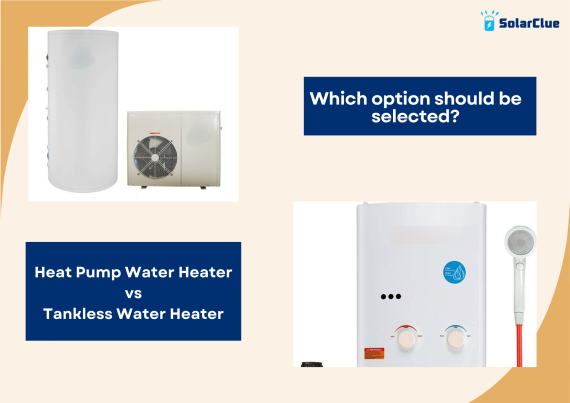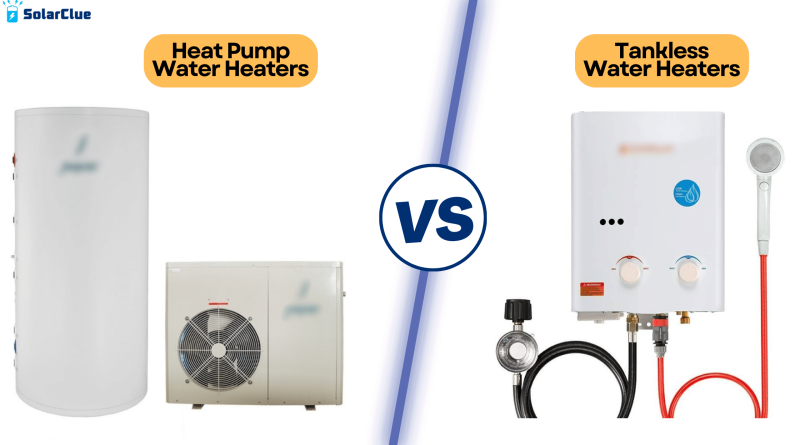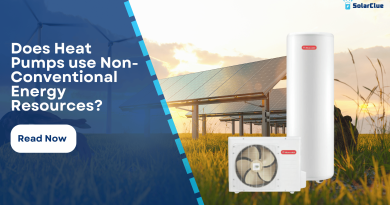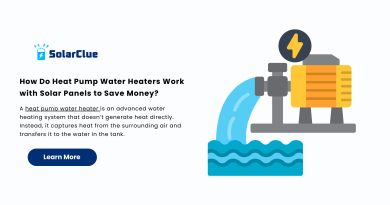Heat Pump Water Heater or Tankless – Which is Better?
There is always so much confusion as to which Water Heater would be most suitable for your home. There are so many options available in the market, and it can be overwhelming. This blog will compare heat pump water heaters and tankless, exploring the heat pump efficiency, costs, and the environmental impact. Let’s get started.
Table of Contents
How does a heat pump water heater work?
This is how a heat pump works:
- It uses a refrigerant.
- The refrigerant absorbs heat from the surrounding air through the evaporator coils.
- The exhaust fan draws air over the coils, causing the refrigerant to evaporate.
- The gaseous refrigerant is compressed, increasing its temperature. This hot gas enters the condenser coils inside the water tank, releasing heat to the water.
- The refrigerant condenses back into a liquid and goes through an expansion process before repeating the cycle. This closed-loop system efficiently transfers environmental heat to the water without directly generating heat, saving energy and being eco-friendly.
How does a Tankless water heater work?
A tankless, prepares hot water on demand or instantaneously. It does not use any storage tank.
When the hot water tap is turned-on, cold-water flows through a heat exchanger unit. Either a natural gas burner or an electric element then heats the water. This provides a continuous flow of hot water, without having to wait for a storage tank to fill up. However, tankless have a limit on the maximum flow rate they can deliver.
But which one among the two would be a more for your home? Let’s find out.
We will draw a comparison on the following basis:
- Costs/Expenses
- Environmental Impact
- Performance

Heat Pumps or Tankless – Which is more efficient?
1. Costs/Expenses:
Tankless Water Heater
The installation cost of tankless is high. The operational cost is also higher. Although it consumes less energy, it is still more expensive to operate tankless.
Heat Pump Water Heater
The installation cost is higher than traditional water heaters, but in comparison to tankless water heaters, it is cost-efficient. The operational cost is very low, as it consumes heat from the environment to heat the water. There might be a waiting time to heat the water, but it saves electricity, so a heat pump cost is lower in the long run.
So, if you want to lower your expenses, go for Heat Pump system.
2. Environmental Impact
Tankless Water Heater
Compared to traditional water heaters, a tankless is energy efficient, as it uses less electricity. But, when compared to a Heat Pump system, it consumes more electricity.
Heat Pump Water Heater
It consumes less energy than any other water heaters. It uses heat from the environment, so it reduces energy consumption and greenhouse gas emissions.
Therefore, if you are looking for a water heater that can reduce energy consumption, Heat Pump Water Heater is your ideal choice.
3. Performance
Tankless Water Heater
Tankless heats water instantaneously. So, the waiting period for the water to heat is lower. But, when the hot water tap is turned on, one needs to wait for some time till hot water comes out. This leads to wastage of water.
Heat Pump Water Heater
On the other hand, there is no water wastage, as hot water is already stored in the storage tank. There may be a waiting time for the water to heat.
If you don’t want water to be wasted, go for a Heat Pump.
Conclusion
When it comes to choosing between a heat pump system and a tankless water heater, the decision ultimately depends on your specific needs and preferences. Carefully considering factors like installation costs, ongoing expenses, and performance requirements will help you determine the best water heater for your home.
You can visit SolarClue® to see the best heat pumps. SolarClue® is an online marketplace where solar energy products are sold at discounts up to 50%.




